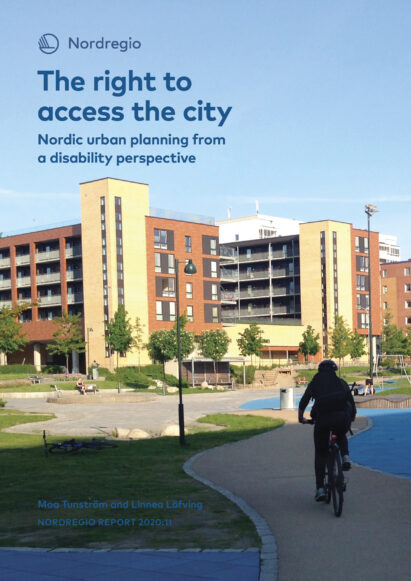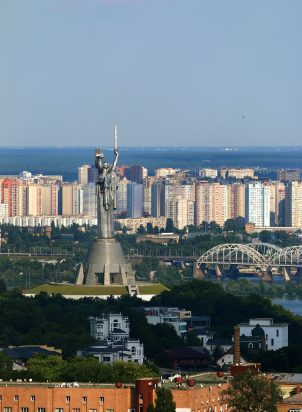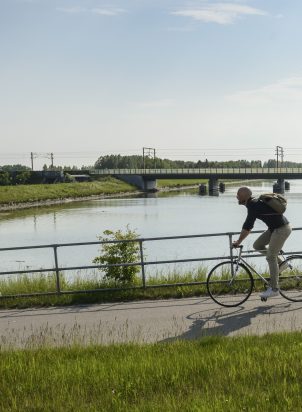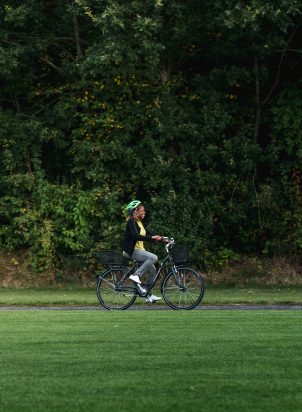The purpose of this report is to add a disability perspective to the discussion on the inclusive city in the Nordic region. The report primarily focuses on the city and the local level, the international framework has proven to be of importance. But it seems to be especially important in countries early in the process of implementing universal design.
This was done by studying Nordic municipal strategies and planning practices related to accessibility, universal design and inclusion and interviewing national and local representatives from the selected countries and cities. In addition, we have included the perspective of users, via representatives of Nordic authorities and nongovernmental organizations (NGOs) in the Council of Nordic Co-operation on Disability. The cities in focus in the report are Trondheim in Norway, Viborg in Denmark, Tampere in Finland, Reykjavik in Iceland, Qeqqata Kommunia in Greenland and Borås in Sweden.
The report points to the importance of participation and representation in universal design. All the cities in this study emphasize the insights and contributions of people with disabilities in the planning process, in most cases in the form of institutionalized disability councils. To summarize, the lessons learned from this study concern the following topics:
- There is growing interest in the many aspects of inclusion
- The UNCRPD is useful to overcome challenges of limited mainstreaming
- Disability issues often depend on ‘champions’ in local administration
- Knowledge and maintenance are key
- State support and funding are important for pushing agendas and local practice, but the municipalities can also become drivers
- Collecting data and conducting evaluations are important for learning and mainstreaming
- Representation is important







